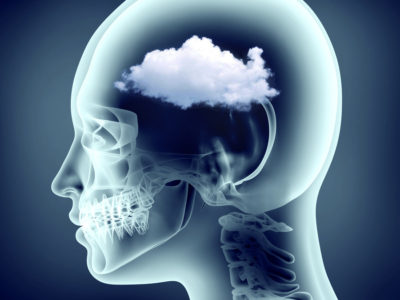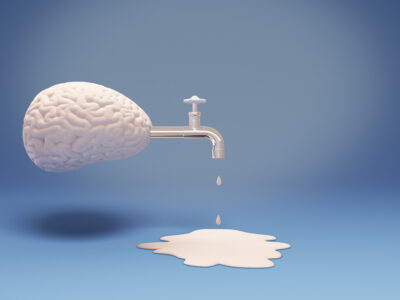Table of Contents[Hide][Show]
- Possible Citicoline Side Effects
9 Exciting Citicoline Benefits+−
- 1. Improves Memory and Recall
- 2. Increases Focus and Motivation
- 6 Ways To Increase Serotonin Naturally
- 3. Manages Symptoms of Neurological Disorders
- 4. Helps Control Mood Disorders
- 5. Slows Age-Related Cognitive Decline
- 6. Assists in Brain Trauma Recovery
- 7. Supports Stroke Recovery
- Protect Your Vision and Support Good Eye Health
- 8. Promotes Eye Health
- 9. May Help with Addiction Recovery
- Are You Suffering From Brain Fog? Here Are 21 Surefire Ways To Keep Your Mind Sharp
- Healing Leaky Brain Syndrome: 5 Natural Solutions
- What is the Gut-Brain Axis?
In the hustle and bustle of daily life, keeping your brain in top-notch shape is vital to maintaining your quality of life.
And that’s where citicoline steps in, a natural game-changer making waves with its surprising impact on brain health. It’s your brain’s trusty sidekick, ensuring it’s functioning at its best. Think improved memory, laser-sharp focus, and an overall brainpower upgrade.
But citicoline does more than just help you crush daily mental tasks. In the long-term, it also defends your brain against the wear and tear of life, potentially tackling age-associated cognitive decline and neurodegenerative challenges.
Let’s take a closer look at how citicoline works and how this brain-boosting superhero can improve your physical, emotional, and mental health.
What Is Citicoline?
Citicoline, also known as cytidine-5’-diphosphocholine or CDP-choline, is a chemical compound that occurs naturally in the human body and appears to play an active role in brain health.
Citicoline is classified as a nootropic, meaning that it can have important mental and emotional benefits.
Research shows that citicoline can have a positive impact on your brain in several ways.
- Slowing or even stopping the progress of dementia
- Enhancing brain function and cognitive skills
- Improving brain function post-stroke
Citicoline also has other uses, although these need some further research to substantiate its effectiveness.
- Improving memory (for older adults)
- Slowing the advancement of Alzheimer’s, glaucoma, and some Parkinson’s disease symptoms
- Managing bipolar disorder
- Lowering the risk of depression
Now that you understand what citicoline is and the most common citicoline uses, let’s take a look at how to introduce more citicoline into your system.
Related
What Are Nootropics?
Discover the world of nootropics (aka “smart drugs”). Learn what they are including the most common ones, if they’re safe, what benefits they provide, plus some tips for taking them.
How to Take Citicoline
You can increase your available citicoline in two ways, either through your diet or with supplements.
Foods Containing Citicoline
There are no food sources that provide an adequate dose of citicoline. But there are foods that contain cytidine and choline, which make up citicoline.
Cytidine is mostly found in organ meats.
Choline is found in a much wider selection of foods. Below are some of the most common.
- Beef
- Broccoli
- Cauliflower
- Dairy products, including milk, most cheeses, and even milk chocolate
- Egg yolks
- Fish, especially cod, salmon, haddock, and other white fish
- Liver, with beef liver containing more choline than chicken liver
- Poultry, including chicken breasts, and both light and dark turkey meat
- Soybeans and soy products
Citicoline Supplements
Citicoline is also available in certain supplements and some prescription drugs. This is an easier route, especially if you have dietary restrictions or preferences that eliminate cytidine or choline-rich foods.
To maximize your brain health, we recommend Just Thrive Focus & Memory.
In addition to containing brain-nourishing citicoline, it also provides vital vitamins, herbs, and nutrients designed to support superior concentration, memory, and a healthy, active brain.
Possible Citicoline Side Effects
As with any supplement or medication, there is always a possibility of side effects.
Fortunately, for citicoline, the possible risks are rare and appear to be limited to the following symptoms.
- Back pain
- Blurry vision
- Digestive issues, including constipation or diarrhea
- Headaches
- Nausea
- Stomach pain
Women who are pregnant or nursing and younger children should avoid citicoline, as potential side effects remain unknown.
And, as with any other supplement, we encourage you to talk to your physician before taking citicoline.
9 Exciting Citicoline Benefits
Now that you have a better understanding of what citicoline is and how it works, let’s explore its most important benefits.
1. Improves Memory and Recall
Citicoline helps your brain produce acetylcholine, a neurotransmitter that plays a role in several brain functions, including memory.
One study showed that taking a daily citicoline supplement resulted in better memory. Although this particular study was conducted among healthy adults, similar studies show that citicoline may also be useful for memory issues caused by mild trauma or aging.
Citicoline was also shown to significantly improve word and object recall during a 28-day study.
2. Increases Focus and Motivation
Having trouble focusing and tackling your to-do list? Citicoline may be your best solution.
Citicoline increases several of your body’s key neurotransmitters, which can in turn boost your motivation, cognitive performance, and mental energy.
- Norepinephrine, which helps regulate your attention and cognitive function
- Acetylcholine, which plays a role in memory, learning, and attention
- Dopamine, which impacts motivation as well as helping to control memory, mood, learning, and concentration
- Serotonin, which controls mood
Together, the increased levels of these important chemicals can help improve your ability to feel focused, attentive, and motivated.
Related
6 Ways To Increase Serotonin Naturally
Explore what serotonin does, how it impacts your physical and psychological health, and all-natural ways to increase your serotonin levels.
3. Manages Symptoms of Neurological Disorders
Neurological disorders are disorders that affect your brain.
By helping your brain transmit messages to your nervous system and the rest of your body, citicoline can help reduce the symptoms of some neurological disorders.
- Research shows that citicoline, when used after primary treatment, significantly improved cognitive function in patients with Parkinson’s disease.
- Another study showed that citicoline can be an effective treatment for Alzheimer’s disease, improving cognitive function and slowing disease progression.
4. Helps Control Mood Disorders
Citicoline has also been shown to help manage mood disorders such as depression or bipolar disorder.
It’s important to note, however, that in these situations citicoline is intended as an adjuvant therapy, used in combination with primary treatments. These may include professional therapy, prescription medication, and others.
If you’re considering taking citicoline to help with a mood disorder, make sure to consult with your mental health provider first to design a comprehensive treatment plan.
5. Slows Age-Related Cognitive Decline
As we mentioned earlier, citicoline is a naturally occurring chemical. But, its production and presence decrease as you age—and so do its brain-boosting functions.
Studies show that taking citicoline is an effective way for older adults to improve age-related memory issues and boost other cognitive functions.
6. Assists in Brain Trauma Recovery
Citicoline can also be part of the recovery process in at least two trauma-related situations.
The first is a traumatic brain injury (TBI), such as a head injury or concussion.
Evidence shows that citicoline can help patients with mild, moderate, or severe TBI’s recover their independence, defined as the ability to perform most daily activities without need for assistance.
Citicoline can also be used to treat patients with hypoxic-induced encephalopathy (HIE). For these patients, decreased blood flow or oxygen to the brain—occuring before or just after birth—has led to brain damage. A recent clinical trial shows that citicoline reduced both the number and the duration of seizures among infants with moderate to severe HIE.
7. Supports Stroke Recovery
Similar to an HIE, an ischemic stroke occurs when the normal blood flow to your brain is blocked or reduced. The difference is that a stroke can happen at any time, while HIE is limited to neonates.
But like an HIE, the limited blood flow to the brain causes a lack of oxygen and nutrients that often leads to neurological damage.
Citicoline can help stroke patients recover in several ways.
- Citicoline promotes neuroplasticity, allowing your brain to create new neural pathways between existing neurons and grow new neurons. This can help “rewire” your brain and improve post-stroke brain functions such as learning and memory.
- Citicoline has anti-inflammatory properties and can reduce brain swelling, which also helps in post-stroke cognitive recovery.
Patients who received citicoline, especially soon after their stroke, had an enhanced recovery with improved functional and cognitive results.
Related
Protect Your Vision and Support Good Eye Health
Learn how to promote optimal eye health with these tips including when to get an exam, foods to eat, and other lifestyle changes you can make.
8. Promotes Eye Health
The choline in citicoline is an important factor in eye health. In fact, choline deficiency is often associated with eye issues, particularly those involving your retina.
In addition to keeping your eyes healthy, citicoline can also help those who are already experiencing vision issues.
In citicoline’s role as a known neuroprotector, it protects the life spans of your cells and slows down their decline and eventual death. This includes the cells in your eyes.
A recent study shows that this neuroprotective function slows down glaucoma, the leading cause of blindness, and can reduce the risk of glaucoma-induced vision loss.
When used for eye health, citicoline is often prescribed via eye drops.
9. May Help with Addiction Recovery
Another emerging role that citicoline can play is to help recovering addicts succeed in their journey back to sober living.
Multiple studies have shown that citicoline can help control cravings, reduce withdrawal symptoms, increase treatment retention, and reduce depressive symptoms.
While these studies were mostly conducted with alcohol and drug addictions (cocaine and methamphetamine), one study also shows that citicoline might be helpful for food addicts, controlling cravings and appetite in much the same way as it did with alcohol and drug users.
Final Thoughts
Citicoline isn’t just a support system for today; it’s your ally for the long run.
With its memory-boosting, focus-enhancing benefits, citicoline empowers you to conquer cognitive challenges, today and tomorrow.
Here’s to a sharper, brighter you—thanks to the incredible benefits of citicoline!
You May Also Like…







